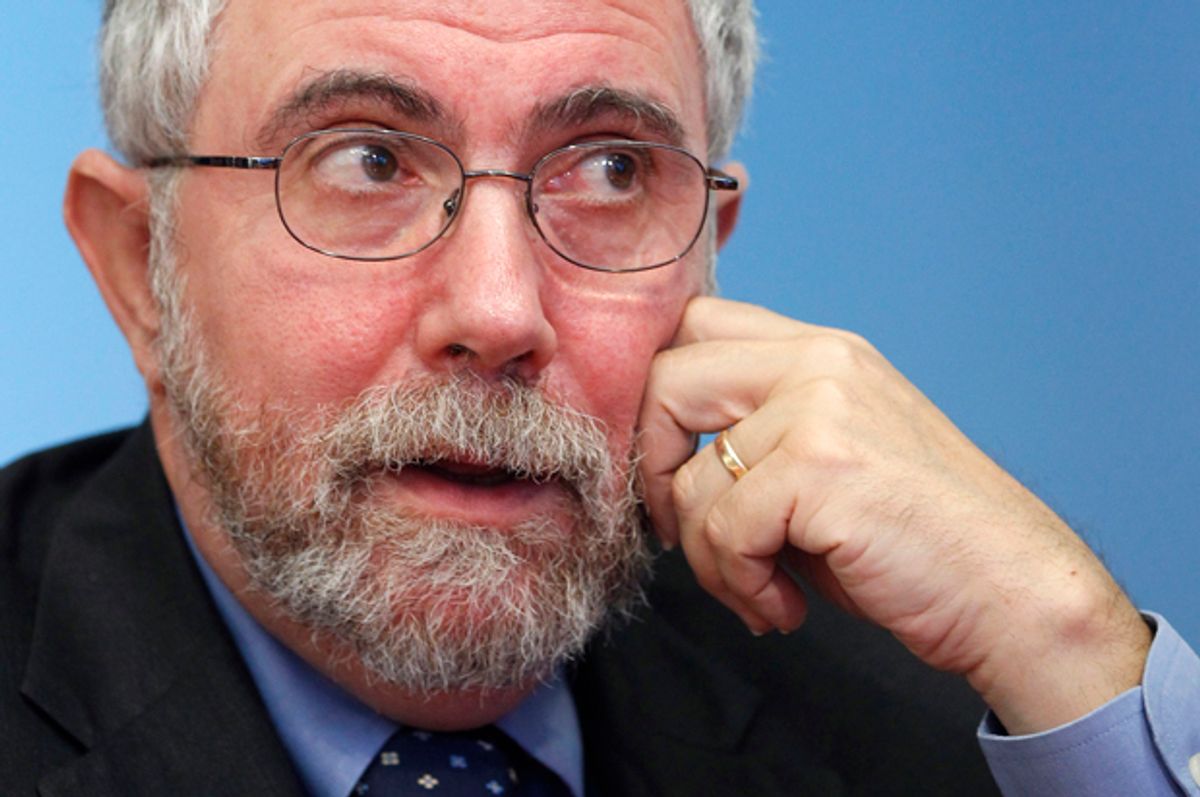New York Times columnist Paul Krugman argued on Monday that nobody's entirely sure why the stock market plunged on Friday, but that volatility of the sort is to be expected given that there is simply "too much money...chasing too few investment opportunities," scouring the world "for new bubbles to inflate."
This situation is responsible for making the global economy seem "accident-prone" as it "lurches from crisis to crisis," and when the world stumbles, so too does the American economy. As for the precise reason for the world economy's propensity to stumble these last seven years, Krugman attributed it to what could seem like "a remarkable run of bad luck," but which is actually caused by what Ben Bernanke called "a global savings glut," i.e. "a huge excess of savings over investment in China and other developing nations."
At the time, he was worried that this "glut" was being transferred into the housing market instead of business investment -- a concern which was completely validated by the bursting of the housing bubble. As for what's causing this glut right now, Krugman argued that it's
[p]robably a mix of factors. Population growth is slowing worldwide, and for all the hype about the latest technology, it doesn’t seem to be creating either surging productivity or a lot of demand for business investment. The ideology of austerity, which has led to unprecedented weakness in government spending, has added to the problem. And low inflation around the world, which means low interest rates even when economies are booming, has reduced the room to cut rates when economies slump.
Whatever the precise mix of causes, what’s important now is that policy makers take seriously the possibility, I’d say probability, that excess savings and persistent global weakness is the new normal.
My sense is that there’s a deep-seated unwillingness, even among sophisticated officials, to accept this reality. Partly this is about special interests: Wall Street doesn’t want to hear that an unstable world requires strong financial regulation, and politicians who want to kill the welfare state don’t want to hear that government spending and debt aren’t problems in the current environment.
But there’s also, I believe, a sort of emotional prejudice against the very notion of global glut. Politicians and technocrats alike want to view themselves as serious people making hard choices — choices like cutting popular programs and raising interest rates. They don’t like being told that we’re in a world where seemingly tough-minded policies will actually make things worse. But we are, and they will.

Shares